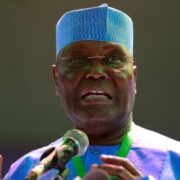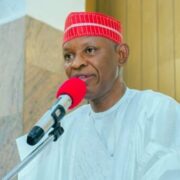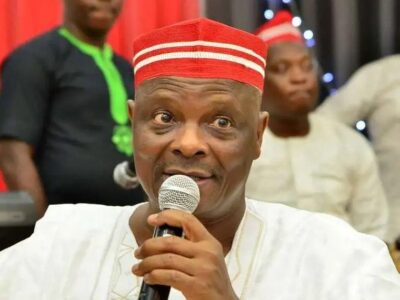Nigeria has spent about $2.93bn servicing Eurobond debt within eight quarters under President Bola Tinubu, according to a detailed review of external debt-service data published by the Debt Management Office (DMO). The records, covering Q3 2023 to Q2 2025, show that Eurobonds accounted for 31.5% of the nation’s $9.32bn total external debt servicing over the two-year period.
A deeper breakdown reveals a troubling pattern: $2.43bn, or 83% of all Eurobond servicing in the period, went to interest payments, while only $500m reduced the principal. Analysts say this underscores the high cost of Nigeria’s heavy reliance on commercial borrowing and signals that steep debt obligations will remain a major fiscal burden for years.
Q3 2023–Q2 2025: How Nigeria Paid Its Eurobond Bills
President Tinubu assumed office in May 2023, making Q3 2023 the first full quarter under his administration—and also the most expensive in terms of Eurobond repayment. That quarter, Nigeria redeemed a maturing bond, paying:
- $500m principal
- $443.66m interest
- Total: $943.66m, accounting for 67.8% of all external debt servicing in the quarter.
Eurobond servicing fell sharply in Q4 2023 to $148.57m, all interest, representing just 15.8% of the total external debt bill.
The burden surged again through 2024:
- Q1 2024: $282.57m (25.2% share)
- Q2 2024: $293.73m (26.2% share)
Both quarters reflected rising interest costs despite the absence of principal repayments.
In Q3 2024, Eurobond servicing spiked to $427.72m, entirely interest, taking 31.9% of the total external-debt bill. Q3 has increasingly become a heavy repayment window due to Eurobond coupon cycles.
Relief came temporarily in Q4 2024, mirroring the previous year, as Eurobond service fell again to $148.57m—the lowest quarterly share (13.8%) in the two-year window.
But by Q1 2025, Eurobond obligations climbed back to $427.72m, matching the Q3 2024 high and accounting for 30.7% of all external debt servicing.
The most recent data for Q2 2025 shows $260.07m in Eurobond servicing—again entirely interest—representing 27.9% of foreign-debt service for the quarter.
Nigeria’s Eurobond Exposure Rises to $17.32bn
Beyond repayments, Nigeria’s Eurobond commitments have climbed. As of June 2025, the DMO reports a portfolio of $17.32bn, up from $15.62bn in June 2023—a 10.88% increase. Eurobonds now make up 36.86% of Nigeria’s total external debt.
Government borrowing appetite remains strong. In September, the Federal Executive Council approved plans to raise $2.3bn in new Eurobonds under the 2024–2025 borrowing plan, including $1.1bn for refinancing maturing obligations.
In November, Nigeria successfully raised $2.35bn through a dual-tranche Eurobond issuance—its biggest-ever order book, attracting $13bn in bids from investors across the world.
The fresh offering included:
- $1.25bn due 2036 at 8.63%
- $1.10bn due 2046 at 9.13%
The DMO described the overwhelming demand as a signal of strong investor confidence.
Government: “This Shows Confidence in Nigeria”
President Bola Tinubu hailed the oversubscription as a vote of confidence in Nigeria’s reform agenda, while Finance Minister Wale Edun said the outcome reflected international trust in the government’s economic direction.
DMO Director-General, Patience Oniha, said tapping long-term Eurobond financing aligns with Nigeria’s goal of boosting growth while reducing pressure on domestic borrowing.
Proceeds from the issuance will go toward the 2025 budget deficit and other funding needs.
Experts: Borrowing Is Easy — Paying Back Is the Hard Part
Financial analysts offered mixed reactions to Nigeria’s growing reliance on Eurobond debt.
Olatunde Amolegbe, CEO of Arthur Stevens Asset Management, said Eurobonds will continue to feature prominently because they provide quick access to capital without the heavy conditions typical of multilateral loans. He stressed that borrowing is not the real issue—how the funds are used and repayment capacity are what matter.
Economist Adewale Abimbola downplayed repayment risks, noting Nigeria’s consistent history of meeting its Eurobond obligations. He argued that commercial debt remains viable if exchange-rate and interest-rate risks are properly managed.
But research analyst Dayo Adenubi warned that Eurobonds are “expensive money” and could lead to refinancing traps if not handled carefully. He noted that Nigeria often rolls over principal by issuing new Eurobonds at maturity—an approach that can quickly become unsustainable if macroeconomic fundamentals weaken.
He cited countries like Ghana, Kenya, and Sri Lanka as cautionary examples of what happens when Eurobond-funded projects fail to generate expected returns.
Bottom Line
Nigeria’s Eurobond servicing under Tinubu has been dominated by interest payments, with only $500m of the $2.93bn going toward principal reduction. Meanwhile, the Eurobond stock continues to grow, and the government remains dependent on commercial debt to finance budgets and refinance maturing obligations.
While recent issuances have attracted strong investor interest, experts warn that the rising cost of servicing these debts could strain public finances unless economic reforms deliver sustainable revenue and stable foreign-exchange conditions.
If you’d like, I can shorten the article, format it as a blog post, or prepare a social-media-ready summary.




















Comments